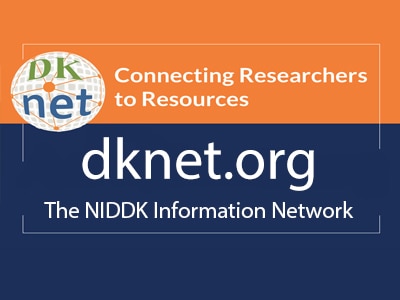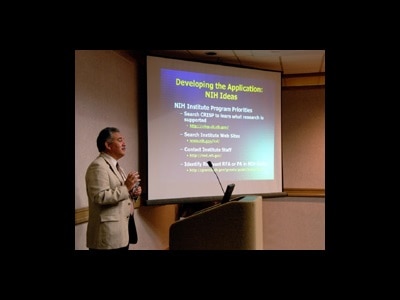Cystic Fibrosis Research & Translation Centers
CFRTCs provide support for basic, preclinical, and clinical research efforts to advance scientific knowledge and new therapies for CF.
NIDDK Program Staff
- Thomas Eggerman, M.D., Ph.D. Cystic fibrosis research and translation centers, Cystic Fibrosis basic research and clinical trials, rare metabolic diseases basic and clinical trials, clinical islet transplantation registry; advanced artificial pancreas clinical trials, post COVID-19 new onset diabetes, Integrated Islet Distribution Program, Human Islet Research Network (HIRN)
Funding for Cystic Fibrosis Research & Translation Centers
The goal of these CF Research and Translation Centers is to support research to develop and test therapies for CF. Centers provide increased, cost effective collaboration among multidisciplinary groups of investigators at institutions or a group of institutions with an established, comprehensive research base in cystic fibrosis.
NIDDK funds Cystic Fibrosis Centers through a P30 mechanism. Please see the CF Application Resources for required tables and addition documentation.
Centers are funded on the following review schedule:
- 3 Centers January Council 2023
- 4 Centers January Council 2020
Resources and Services Available from Cystic Fibrosis Research & Translation Centers
The Cystic Fibrosis Research and Translation Centers provide a variety of research resources to facilitate CF research from basic to the conduct of clinical trials. In addition, there are pilot and feasibility research programs that provide limited funds for early stage investigations.
Cystic Fibrosis Center Sites
The Cystic Fibrosis Research and Translation Centers provide research services for investigators at their sites as well as for other investigators at other regional, national and even international sites. These services are quite varied and include various CF related efforts involving biochemical, cell models, animal models small molecule therapeutic development, gene vectors and clinical applications.
University of North Carolina- Research Aims: The UNC CF Center focus includes ion transport physiology, mucin biology, microbiology and animal models.
- Activities & Services
- UNC CF Center has Cores including preclinical, cell models, mucous biochemistry and clinical translation.
- Pilot & Feasibility Program
- Research Aims: The UAB CF Center aims are to provide a multi-disciplinary research support for CF basic research and therapy.
- Activities & Services
- The UAB CF Center maintains Core facilities available for studies of cell biology, ion transport, animal models and translational aspects of CF research.
- Pilot & Feasibility Program
- Research Aims: The UCSF CF Center focus is to develop novel therapies for cystic fibrosis and to enhance many research projects examining the mechanisms of cystic fibrosis lung disease.
- Activities & Services
- The UCSF CF Center has Cores including high throughput screening, synthesis, cells and tissues and bioassay.
- Research Aims: The U of W CF Center focus is clinical-translational science in cystic fibrosis (CF), spanning from early drug development to dissemination into the CF community.
- Activities & Services
- The U of W CF Center has Cores including microbiology, genomics, host response and clinical care.
- Pilot & Feasibility Program
- Research Aims: The U of Iowa research aims include gene therapy, animal models and CF related diabetes.
- Activities & Services
- The U of Iowa CF Center has Cores including gene vector, animal models, clinical, comparative pathology, cells and tissue.
- Pilot & Feasibility Program
- Research Aims: The Georgia CF Center research focus includes CF-related diabetes (CFRD), the impact of CF on nutritional status, gastrointestinal function, liver function, (including CF-related liver disease, CFLD), and metabolism, and the relationship between these complications of CF disease and lifestyle/behavioral choices such as diet, exercise, activity and sleep.
- Activities & Services
- The Georgia CF Center has Cores including diabetes, GI and Nutrition, clinical research and informatics as well as lifestyle and behavior.
- Pilot & Feasibility Program
- Research Aims: The Cincinnati Children's CF Center research aims are to strengthen and expand the CF research program at CCHMC with an emphasis on establishing a thematic program of "personalized Medicine for CF".
- Activities & Services
- The Cincinnati Children’s CF Center has Cores including personalized clinical core, personalized model system core, and functional and transcriptional atlas of CF respiratory cells
- Pilot & Feasibility Program
- Research Aims: Dartmouth CF Center research aims are to build on a long history of CF-related research in lung infection, inflammation/immunity and translational science, by expanding the capability to investigate host-microbe interactions in the gut, and their impact on gut dysbiosis and overall systemic health of CF-related diabetes patients.
- Activities & Services
- The Dartmouth CF Center has Cores including gastrointestinal biology, clinical and translational, and bioinformatics and biostatistics.
- Pilot & Feasibility Program
Related Links
-
View related clinical trials from ClinicalTrials.gov.
-
Study sections conduct initial peer review of applications in a designated scientific area. Visit the NIH’s Center for Scientific Review website to search for study sections.
Research Resources
NIDDK makes publicly supported resources, data sets, and studies available to researchers to accelerate the rate and lower the cost of new discoveries.
- Ancillary Studies to Major Ongoing Clinical Studies to extend our knowledge of the diseases being studied by the parent study investigators under a defined protocol or to study diseases and conditions not within the original scope of the parent study but within the mission of the NIDDK.
- NIDDK Central Repository for access to clinical resources including data and biospecimens from NIDDK-funded studies.
- NIDDK Information Network (dkNET) for simultaneous search of digital resources, including multiple datasets and biomedical resources relevant to the mission of the NIDDK.
Additional Research Programs
Research Training

NIDDK supports the training and career development of medical and graduate students, postdoctoral fellows, and physician scientists through institutional and individual grants.
Learn about NIDDK Research Training ProgramsSmall Business
Small Business Programs
NIDDK participates in the Small Business Innovation Research (SBIR) and Small Business Technology Transfer (STTR) programs. These programs support innovative research conducted by small businesses that has the potential for commercialization.
Learn about NIDDK Small Business ProgramsHuman Subjects Research
Human Subjects Research
NIDDK provides funding for pivotal clinical research, from preliminary clinical feasibility to large multi-center studies.
Learn about Human Subjects ResearchTranslational Research

NIDDK provides funding opportunities and resources to encourage translation of basic discoveries into novel therapeutics.
Learn about NIDDK Translational Research Opportunities-
NIH Common Fund
Learn about current projects and view funding opportunities sponsored by the NIH Common Fund.
-
Planning to Apply? Register Early
Registration is required at eRA Commons and grants.gov and can take 4 weeks.




